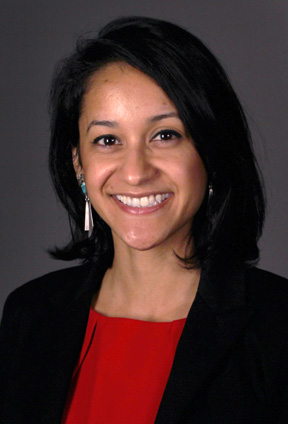Working with Communities to Strengthen the Public Health Fight for Environmental Justice
2:00 pm US Eastern Time
Slides & Resources
Slides
Ana Mascareñas: Environmental Justice to Promote Public Health and Environmental Protections
Vanessa Galavíz: Intersection of Science, Public Health, and Environmental Justice
Resources
Ana Mascareñas:
First National People of Color Environmental Leadership Summit: Principles of Environmental Justice. October 1991.
EPA: Summary of Executive Order 12898, Federal Actions to Address Environmental Justice in Minority Populations and Low-Income Populations. 59 FR 7629; February 16, 1994.
California Department of Toxic Substances Control: Office of Environmental Justice & Tribal Affairs
California Department of Toxic Substances Control: Exide Technologies Lead Contamination and Soil Sampling Data Maps
Vanessa Galavíz:
Comite Civico Del Valle, Inc: Imperial Valley Canal Water Study
California Office of Environmental Health Hazard Assessment (OEHHA), CalEnviroScreen: Water Quality Assessment for Rural Communities in Imperial County

This is the eighth webinar in our series, 20 Pioneers Under 40 in Environmental Public Health.
In this uncertain political climate, how can we achieve a strong continuance of integrating environmental justice into regulatory decision making? How are states and local communities fighting for public health equity and what tactics are being used?
On April 24, 2018 we heard about groundbreaking approaches to environmental justice that center on community knowledge and collaboration. Ana Mascareñas, MPH, Assistant Director for Environmental Justice at the California Department of Toxic Substances Control (DTSC), discussed efforts to promote environmental justice within regulatory agencies and in collaboration with communities. She is developing a program at DTSC that seeks to incorporate the voices of environmental justice and tribal communities in environmental regulatory decision-making through proactive solutions, sharing information, and creating partnerships to reduce environmental impacts and improve public health. Ms. Mascareñas discussed examples of data sharing through GIS-based applications and policy development to address civil rights and language access considerations. In DTSC’s mission to protect California’s people and environment from the harmful effects of toxic chemicals, she hopes to connect strategies that value community knowledge, use best available science and information, and effectively apply communications and legal tools.
Dr. Vanessa Galavíz, Director of Community Engagement and Education at the University of Washington School of Public Health’s Pacific Northwest Agricultural Safety and Health Center and Staff Toxicologist at the California Environmental Protection Agency’s Office of Environmental Health Hazard Assessment, discussed the integration of science, public health, and environmental justice. In doing so, she discussed the use of interdisciplinary approaches to assess and, ultimately, address exposure and health disparities related to occupational, environmental, socioeconomic, and biological stressors faced by underserved communities. In these efforts she works with community partners to ensure community-driven solutions to increase capacity and resilience by utilizing elements of community-based participatory research, citizen science, and civic engagement to achieve exposure and health equity. Dr. Galavíz also discussed the importance of integrating sustainability while addressing and reducing community-prioritized disparities, which ultimately strengthens the fight for environmental justice.
Featured Speakers
 Ana Mascareñas, MPH, was appointed as the California Department of Toxic Substances Control’s (DTSC) first Assistant Director for Environmental Justice in May 2015. Prior to joining DTSC, Mascareñas was a membership coordinator, then policy and communications director, at Physicians for Social Responsibility-Los Angeles, where she promoted environmental health protections and fought for social and environmental justice in local, state, and national policy efforts. From 2006-2008, Mascareñas served in the Los Angeles and Washington D.C. offices of Congressman Xavier Becerra, directly assisting constituents in their claims and applications with federal agencies. She was a member of the East Los Angeles Residents Association board of directors from 2007 to 2015, where she organized alongside community, youth, and business leaders to improve East Los Angeles’ social, educational, economic and structural resources through advocacy and civic engagement.
Ana Mascareñas, MPH, was appointed as the California Department of Toxic Substances Control’s (DTSC) first Assistant Director for Environmental Justice in May 2015. Prior to joining DTSC, Mascareñas was a membership coordinator, then policy and communications director, at Physicians for Social Responsibility-Los Angeles, where she promoted environmental health protections and fought for social and environmental justice in local, state, and national policy efforts. From 2006-2008, Mascareñas served in the Los Angeles and Washington D.C. offices of Congressman Xavier Becerra, directly assisting constituents in their claims and applications with federal agencies. She was a member of the East Los Angeles Residents Association board of directors from 2007 to 2015, where she organized alongside community, youth, and business leaders to improve East Los Angeles’ social, educational, economic and structural resources through advocacy and civic engagement.
Mascareñas graduated from Brown University with bachelor degrees in Human Biology and Sociology, and received a Master of Public Health in Environmental Health Sciences from the Fielding School of Public Health at the University of California, Los Angeles. She is a 2010 graduate of Hispanas Organized for Political Equality (HOPE) Leadership Institute. Mascareñas was born in northern California, raised in New Mexico, and proudly comes from a three-generation California farmworker family.
 Vanessa Galavíz, PhD, MPH, is an environmental health scientist whose work focuses on addressing environmental injustices faced by underserved communities. She works to reduce exposures in predominately low-income and minority populations with multiple sources of pollution who also face occupational, socioeconomic and biological stressors. In combination, these stressors can increase vulnerability to adverse health effects from exposure to pollution inevitably resulting in disproportionate health impacts. She is Mexican-American and experienced first-hand the struggles of living in an underserved community in Los Angeles, and was first in her family to attend college and graduate school. Dr. Galavíz has experience in multiple aspects of the environmental health field, including industrial hygiene/exposure assessment, air pollution, biomarkers of exposure and susceptibility, cumulative impacts, community-based participatory research, citizen science, and science-policy work. She works in partnership with communities, government, and academics to achieve environmental justice for underserved communities.
Vanessa Galavíz, PhD, MPH, is an environmental health scientist whose work focuses on addressing environmental injustices faced by underserved communities. She works to reduce exposures in predominately low-income and minority populations with multiple sources of pollution who also face occupational, socioeconomic and biological stressors. In combination, these stressors can increase vulnerability to adverse health effects from exposure to pollution inevitably resulting in disproportionate health impacts. She is Mexican-American and experienced first-hand the struggles of living in an underserved community in Los Angeles, and was first in her family to attend college and graduate school. Dr. Galavíz has experience in multiple aspects of the environmental health field, including industrial hygiene/exposure assessment, air pollution, biomarkers of exposure and susceptibility, cumulative impacts, community-based participatory research, citizen science, and science-policy work. She works in partnership with communities, government, and academics to achieve environmental justice for underserved communities.
Dr. Galavíz holds a PhD in Environmental and Occupational Hygiene from the University of Washington and an MPH in Environmental and Occupational Health from San Diego State University.
This webinar was moderated by Gina Solomon, MD, MPH, Clinical Professor of Medicine in the Division of Occupational and Environmental Medicine at UCSF.
A recording will be available soon. If you would like to be notified when it is available, please contact us.


